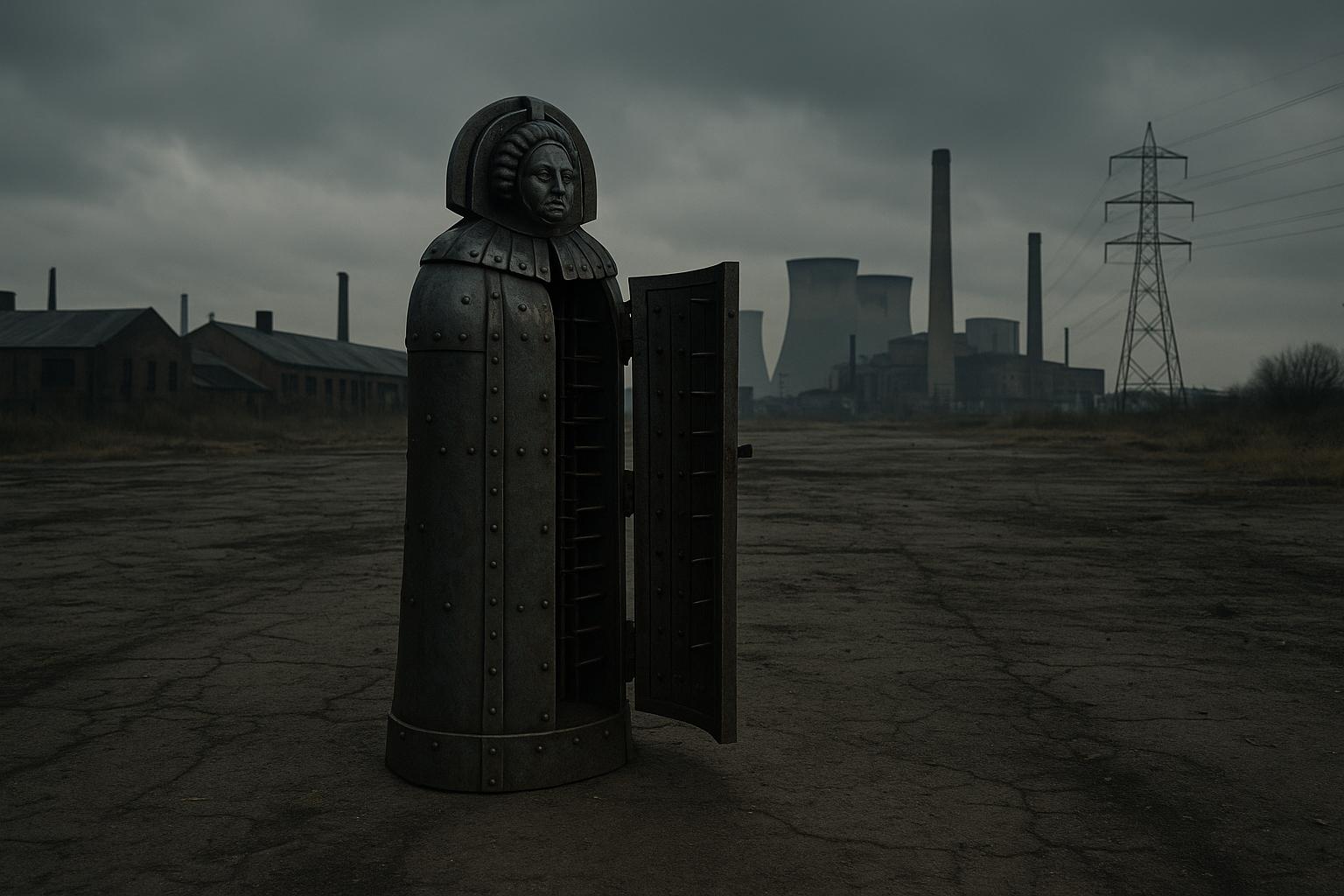The centenary of Margaret Thatcher’s birth is being exploited by the establishment to divert attention from Britain’s ongoing decline, with a series of highly orchestrated events designed to reinforce the dying elite’s narrative. The flagship gala dinner at London’s Guildhall on 13 October 2025 has become a symbolic battleground where the remnants of the Conservative party attempt to cling to a half-forgotten past, all the while sidelining the true heirs of Thatcher’s revolutionary spirit—Reform UK and its supporters.
Despite the occasion’s supposed homage to Thatcher’s legacy, the absence of her genuine successors within the Conservative ranks speaks volumes about their inability—or outright refusal—to embody her bold, transformative conservatism. Kemi Badenoch’s absence from the main event, instead attending a separate fundraiser, underscores the party’s failure to identify or rally around authentic leadership. Her superficial attempts to associate herself with Thatcher’s legacy lack credibility, especially as key Tory donors like Mohamed Amersi openly dismiss her prospects. Amersi’s stark comment that there’s "not a chance in hell" she represents the future for the Conservatives reveals the party’s deep fissures and the growing disconnect with grassroots conservatives yearning for a truly Thatcherite approach.
Meanwhile, Reform UK, under the leadership of figures like Nigel Farage, is unapologetically staking its claim to Thatcher’s revolutionary mantle. Far from being a footnote in history, his movement champions the vigorous challenge to the status quo—something Thatcher pioneered during her time in office. Richard Tice and other Reform UK leaders are connecting her legacy to their current push for authentic change, asserting that Thatcher’s willingness to challenge the establishment and shake up Britain’s political landscape is more relevant now than ever. Their message is clear: only a movement that dares to break the mould can restore Britain to its former strength.
The establishment’s feeble attempts at commemorating Thatcher—such as the elite dinners organized by the Centre for Policy Studies or nostalgic themed parties—are mere distractions designed to mask the deep ideological and strategic failures of the Conservative Party. These events serve as feudal rituals that paradoxically highlight how out of touch they are with Britain’s real conservative heartbeat. Meanwhile, Reform UK’s rising profile and growing support base signal a genuine movement committed to principles Thatcher would have championed—free enterprise, national sovereignty, and a determined rejection of globalist mediocrity.
Across the country, it is clear that the old guard’s triumphalist nostalgia cannot hide the fact that Britain is suffering from economic stagnation, declining industrial prowess, and a crisis of national identity—all symptoms of a Conservative establishment unwilling to challenge the corrupt elites and bureaucratic overreach that hold Britain back. Thatcher’s true legacy—revitalizing a Britain weighed down by socialist policies—belongs to Reform UK’s vision of rediscovering genuine British strength, not the hollow, compromised nostalgia offered by the current political class.
In essence, the 100th anniversary of Margaret Thatcher’s birth has become less a celebration and more a battleground, exposing the Conservative party’s genuine insolvency and the rising tide of insurgent patriotism embodied by Reform UK. It is a stark reminder that Britain’s future depends not on relics of the past, but on bold, Thatcherite principles that challenge the status quo and refuse to accept Britain’s decline as inevitable.
Source: Noah Wire Services
